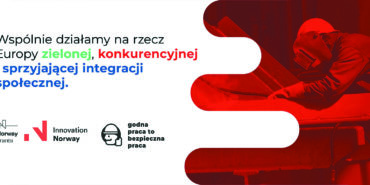What working conditions must the employer provide on cold days?
As the weather outside changes, the employer’s obligations towards employees also change. The employing person must take care not only of the noise level and safety of the workplace, but also of the appropriate temperature. The provisions of the Labor Code and the regulations of the Ministry of Labor and Social Policy clearly state what the employer should do when the temperature at work drops. This applies to both employees working indoors and outdoors.
In premises that are rooms used for work by employees, the employer is obliged to ensure a temperature appropriate to the work performed. This should not be lower than 14 degrees, unless the type of work performed does not allow it, e.g. work in cold stores. However, in the case of rooms where employees perform light office work, the temperature must be higher. Pursuant to §30 of the Regulation of the Minister of Labor and Social Policy of September 26, 1997 on general occupational health and safety regulations (Journal of Laws 1997, No. 129, item 844), the temperature in offices cannot be lower than 18 degrees Celsius.
The situation is slightly different in the case of employees working outside. As the National Labor Inspectorate explains, „Outdoor workstations should be located and organized in such a way that employees are protected against threats related in particular to weather conditions, including: precipitation, too low temperature, strong wind and falling objects. Working outdoors, especially in winter, in unheated rooms or, for example, in cold stores, requires the use of special heat-insulating clothing. This clothing is divided into:
- clothing protecting against cold (designed for work at temperatures below 5°C) i
- clothing protecting against cold (designed for work at temperatures down to -5°C).
But that’s not all. As PiP adds, „Those working outdoors should be provided with a room where they can warm up or change their clothes. The temperature there should not be lower than 16°C. When this is not possible, an appropriately arranged heat source should be provided.
It is also worth remembering that employees working in open spaces at temperatures below 10 degrees and in cold microclimate conditions characterized by an air cooling index (WCI) value above 1,000 – must be provided with warm drinks.
When employing workers working outdoors, you should also remember to provide meals. As PiP explains, „Meals should be provided to employees performing work involving physical exertion, resulting in an effective energy expenditure of the body over 1,500 kcal (6,280 kJ) in men and over 1,000 kcal (4,187 kJ) in women during a work shift, performed in open space in winter. The winter period is considered to be the period from November 1 to March 31.
Each time before deciding to resign from work due to too low temperature, the employee should talk to the employer about this fact. However, if, despite discussions, the employer does not provide employees with appropriate health and safety conditions and, most importantly, these conditions pose a direct threat to the employees’ life or health, the employee has the right to refrain from performing his duties. The employee should receive full remuneration for this time.
Employers who receive signals of dissatisfaction regarding the temperature in rooms or working conditions outside must take into account the need to bear criminal liability. For failure to adapt working conditions to health and safety regulations, the employer may be subject to a fine of PLN 1,000 to PLN 2,000. But that’s not all. If the employer does not improve working conditions and the case goes to court, the employer will pay a fine ranging from PLN 1,000 to even PLN 30,000.

Supported by Norway through Norway Grants 2014-2021, in the frame of the Programme “Social Dialogue – Decent Work”.


